From domestic worker to hotel manager: How a Singapore non-profit helps Indonesian migrants start new lives
Thousands of Indonesian migrant workers have gained essential skills and education at Development Singapore, a non-profit organisation, empowering them to return home not just with savings, but with dreams and courage to transform their lives and communities.
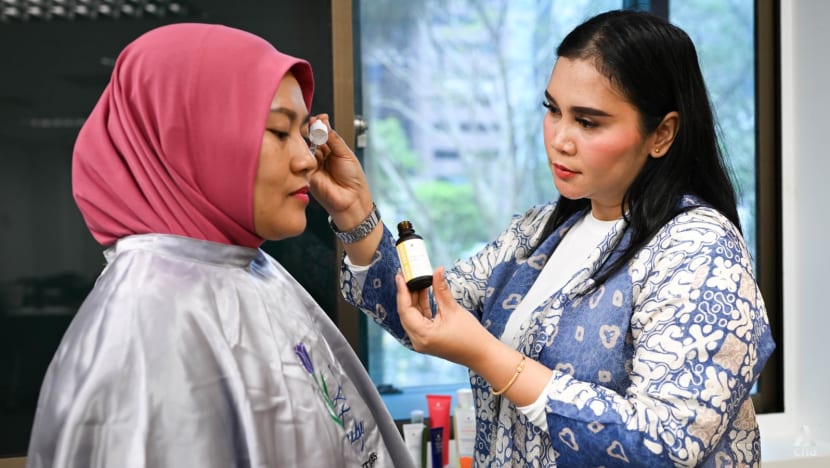
Makeup instructor Elda Hotmaway (right) applies makeup on domestic worker Karlina, one of her students at Development Singapore. Karlina dreams of opening a facial salon when she returns to Indonesia. (Photo: ┬ķČ╣/Lan Yu)

This audio is generated by an AI tool.
SINGAPORE: Karlina, who like many Indonesians goes by one name, dreams of opening a facial salon when she returns to her hometown.
Each Sunday, after a long week of working as a domestic worker in Singapore, she heads to an inconspicuous building in the central business district, where she and dozens other migrants receive training in new skills.
ŌĆ£IŌĆÖm very interested in skincare. I want to have my own business someday,ŌĆØ said the 43-year-old woman in an interview with ┬ķČ╣.
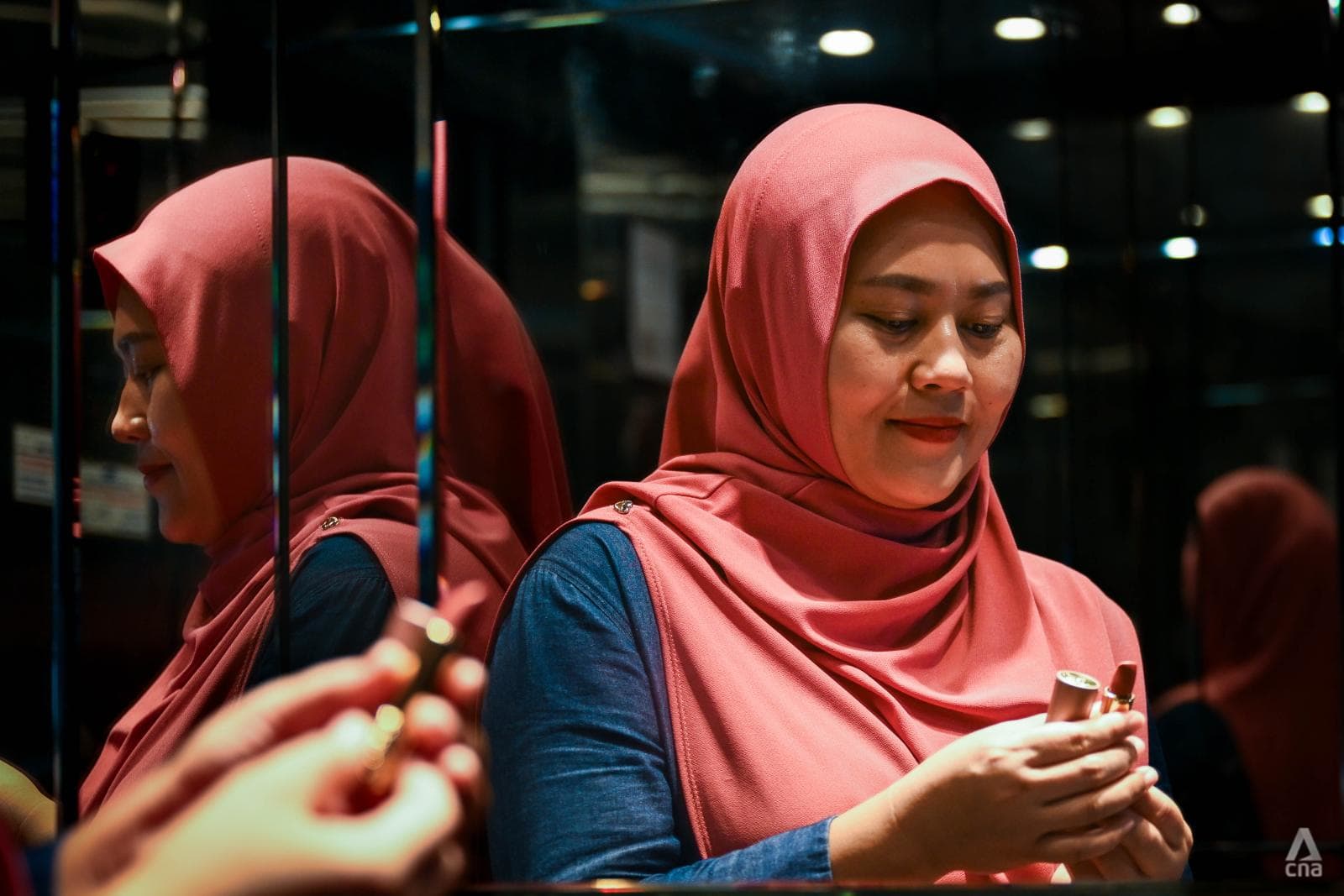
After 18 years working in Singapore, where there are around 200,000 Indonesian migrants, Karlina is now taking the next step to fulfilling her dream by taking up courses at Development Singapore, a non-profit organisation.
Nurul Aida, 26, another student at Development Singapore, shares a similar dream of opening a salon back home.┬Ā
ŌĆ£I won't work in Singapore forever,ŌĆØ said Nurul.
Both Nurul and Karlina look forward to eventually returning home to build new lives with their families.
They are among around 3,000 Indonesian domestic workers who have received training at Development Singapore. Many of them have returned home to start new careers or businesses and also created jobs for others in their communities.
Development Singapore co-founders Harun Lie and Josanti Cornelius Huwae Kaidoen, who are proud of their former studentsŌĆÖ achievements today, never thought the organisation would be this successful when they founded it in 2007.
Their story is part of a series on everyday heroes on . Others who have been featured include wise up to swindlers on dating apps and and set up a welfare home.
CONCERN FOR FELLOW INDONESIANS
Harun, 52, said the movement began after he felt concerned reading a newspaper article about the impact of migration on the communities left behind.
ŌĆ£Many mothers in rural areas who didn't have educational opportunities were forced to work abroadŌĆöin Singapore, Malaysia, Taiwan, and other countries,ŌĆØ Harun recalled.
ŌĆ£This created problems in their hometowns. Crime rates rose because their children were left behind without a maternal figure.ŌĆØ
Harun, a pastor at Bethany Church Singapore, was also disturbed after hearing about the plight of his neighbourŌĆÖs domestic worker who had then recently come from Indonesia.
"The domestic worker cried constantly for two weeks," Harun recounted. It turned out she had recently given birth and had to leave her four-month-old baby to work in Singapore.
Josanti, a 58-year-old member at the same church, shared similar concerns.
With a teaching background, Josanti and Harun decided to found Development Singapore. Although the founders are affiliated with the church, Harun sought to emphasise that Development Singapore's activities are secular and open to all faiths.
ŌĆ£Many of them haven't returned to Indonesia for a long time. We wondered how we could help upgrade their skills so they wouldnŌĆÖt return home empty-handed,ŌĆØ Harun said.
They embarked on a mission to overcome educational barriers facing Indonesian migrant workers.
Development Singapore began by securing classroom spaces, recruiting volunteer teachers, and developing a curriculum to award school certifications up to high-school level in partnership with an institution in Batam.
ŌĆ£I was surprised that one of our students was illiterate,ŌĆØ said Harun, who is now a Singapore citizen.
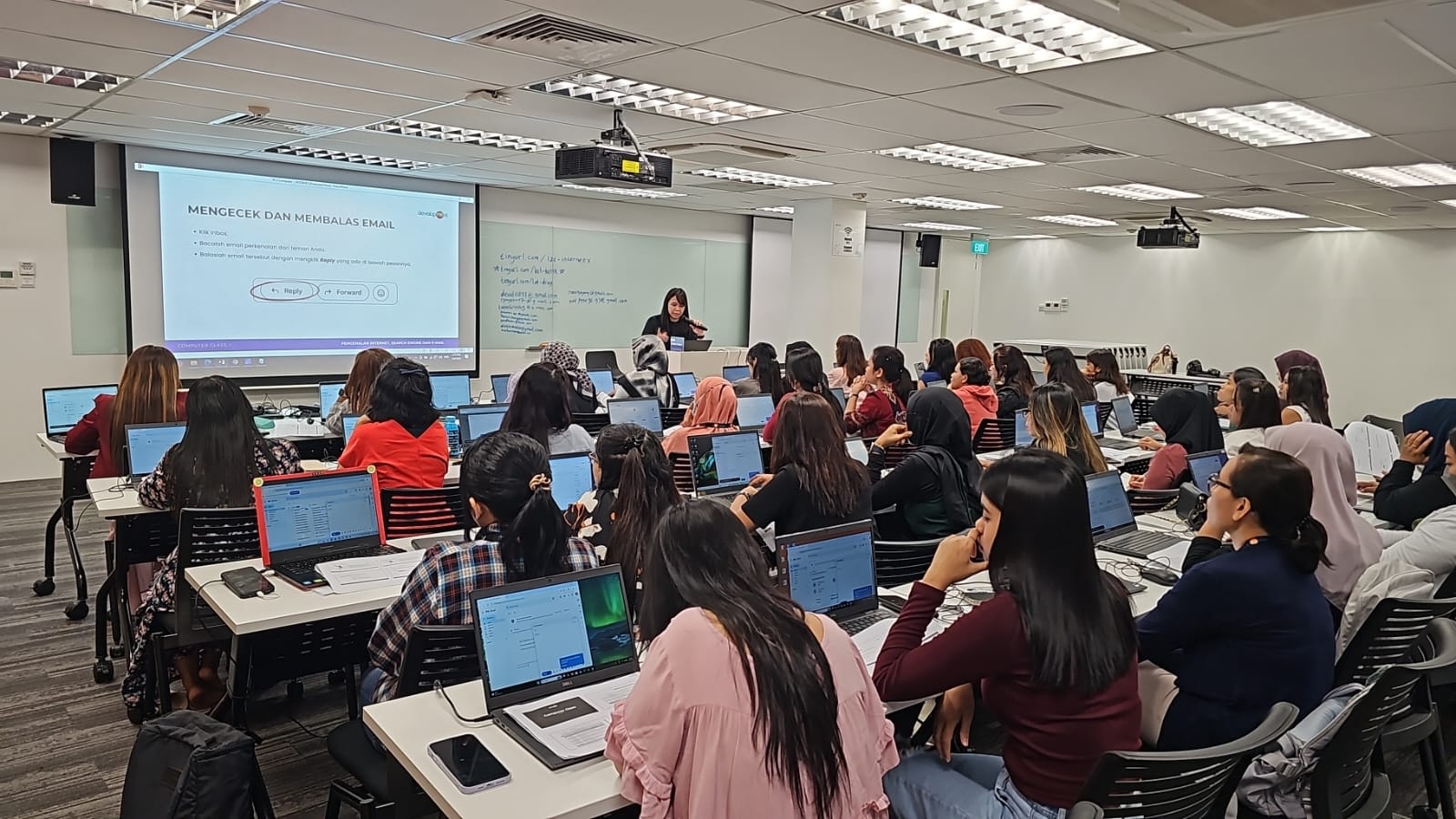
Despite having only Sundays free, many migrants eagerly participated.
In 2010, Harun pioneered a diploma programme in collaboration with a private college in Singapore. Fifty migrant workers showed interest in pursuing higher education.
ŌĆ£We collaborated with the institution that generously provided free classrooms and teachers for a business course,ŌĆØ Harun explained.
The tuition fee, costing about S$12,000 per year, was waived by the college.┬Ā
Two cohorts successfully completed the programme. One graduate is now a hotel manager in Central Java; another is an assistant manager in Batam.
ŌĆ£During the interviews, they were immediately hired because they graduated in Singapore,ŌĆØ Harun proudly stated.
However, the programme was halted after several private colleges in Singapore were involved in fraud scandals, making it difficult for many institutions to keep their licences.
Faced with this challenge, Development Singapore began partnering with Ciputra Entrepreneurship Center, an Indonesian philanthropic organisation that aims to create two million entrepreneurs in Indonesia.
This partnership led to more practical, flexible and impactful training in entrepreneurship and skills development, beyond formal education.
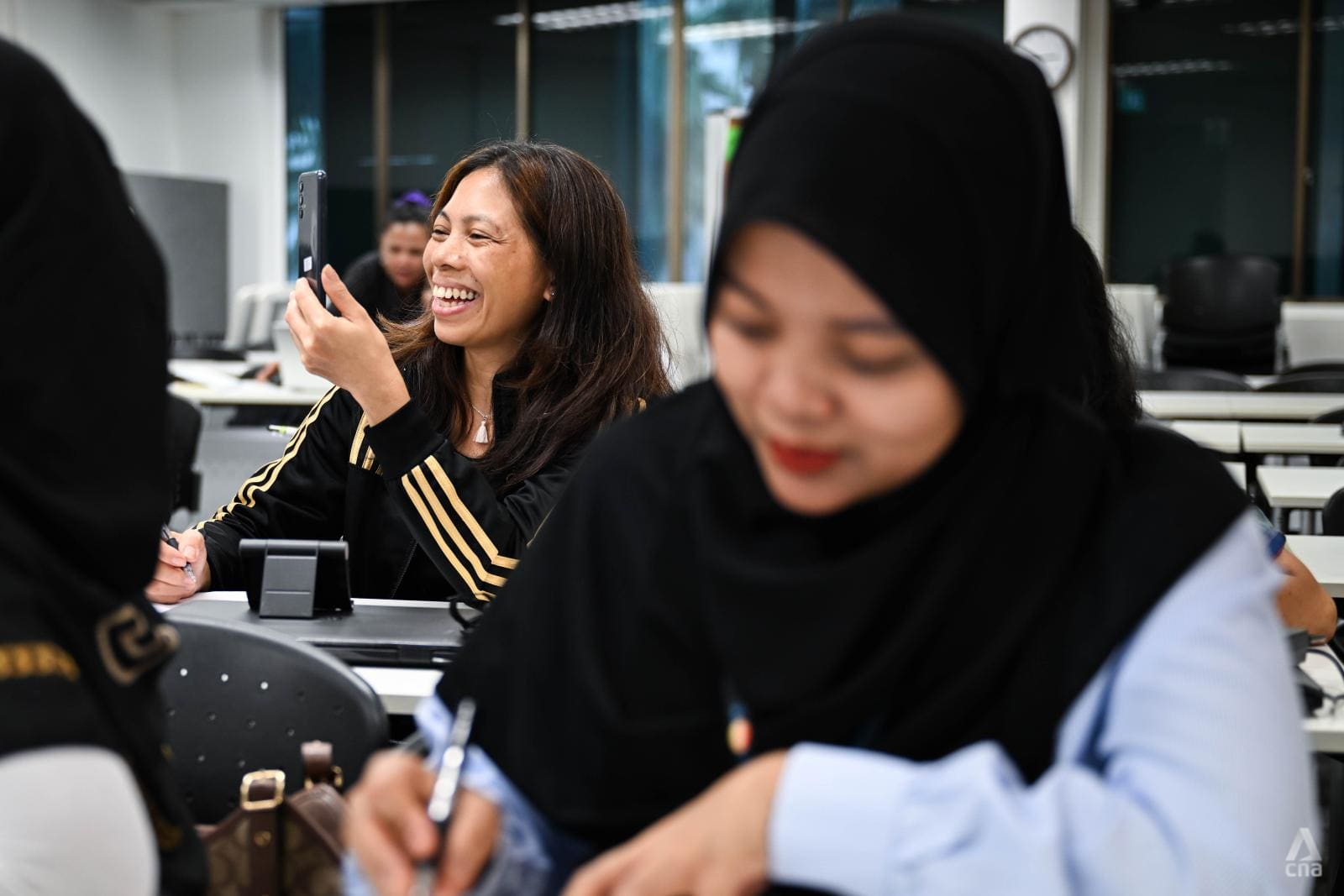
Participants learned basic financial management. They were encouraged to plan how long they wished to work in Singapore and taught how to calculate how much capital they needed to save for their future business back home.
ŌĆ£They aren't just learning skills, but (are) learning to dream again,ŌĆØ said Sri Redjeki Widjaja, Development SingaporeŌĆÖs current coordinator.
Development Singapore then expanded its offerings to cover entrepreneurship, English, makeup, social media, digital marketing, computer skills, as well as creativity and innovation.
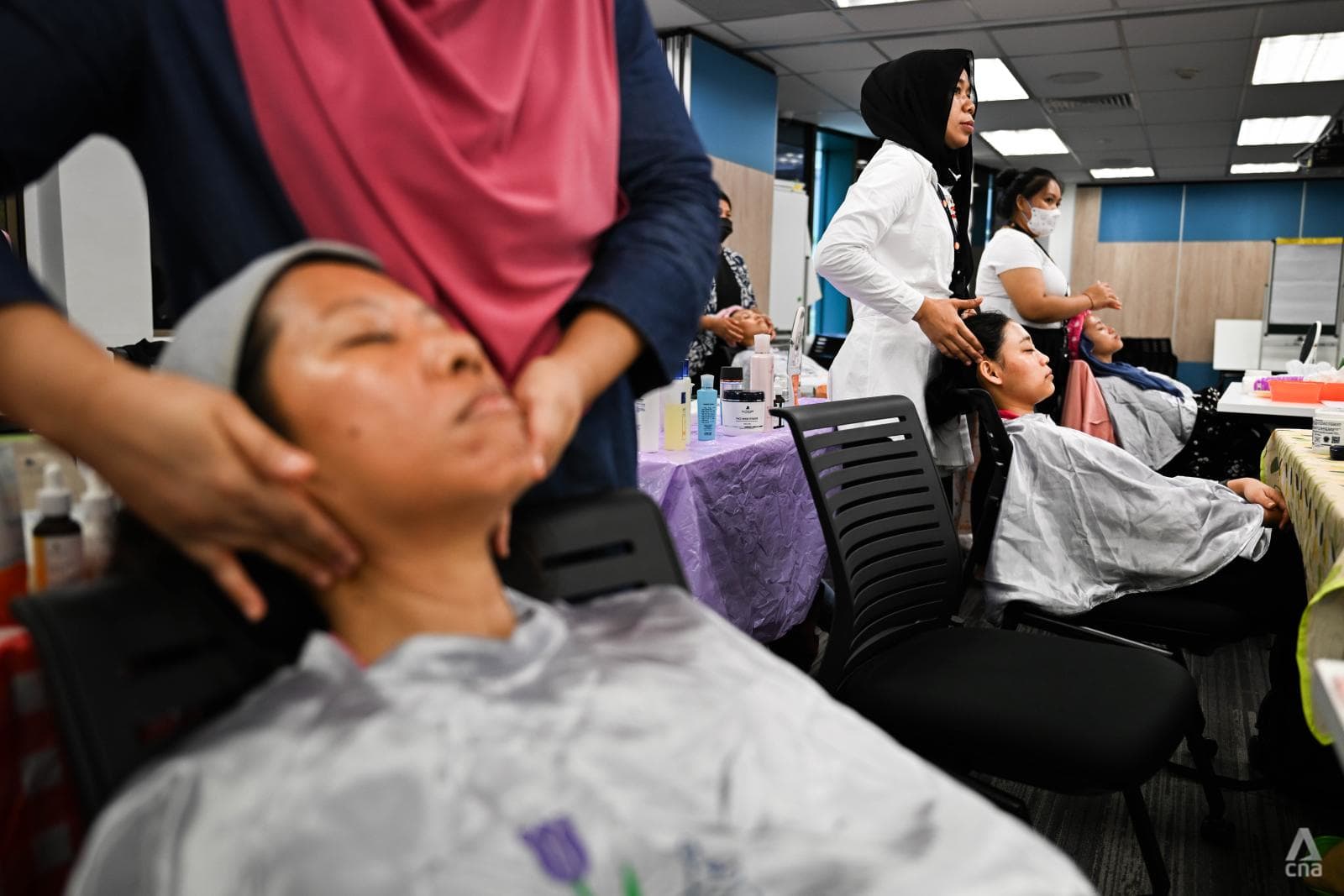
ŌĆ£We hope that when they return to Indonesia, they won't just bring suitcases, but also knowledge, ideas and the courage to start new lives,ŌĆØ said Sri Redjeki, 57.
ŌĆ£We focus on skills. Without credentials or skills, how will they survive in Indonesia?ŌĆØ she added.┬Ā
Related:
DRIVEN BY VOLUNTEERS
Development SingaporeŌĆÖs growth was initially supported by funding from a United States-based non-profit organisation, which has enabled it to keep all the lessons free till today.
It costs about S$1,000 to run each weekŌĆÖs training sessions, including for the renting of classrooms and logistics.
Volunteers from diverse backgrounds also stepped up to provide training both offline and online free of charge.
ŌĆ£Our volunteers include entrepreneurs, professionals and students,ŌĆØ Harun said.
Elda Lasmauli Hotmaway, 42, a volunteer who has travelled from Batam to Singapore every two weeks since April 2024, teaches makeup and facial treatments.
ŌĆ£Initially, only five students attended the makeup class,ŌĆØ Elda told ┬ķČ╣. ŌĆ£Now, there are 21.ŌĆØ
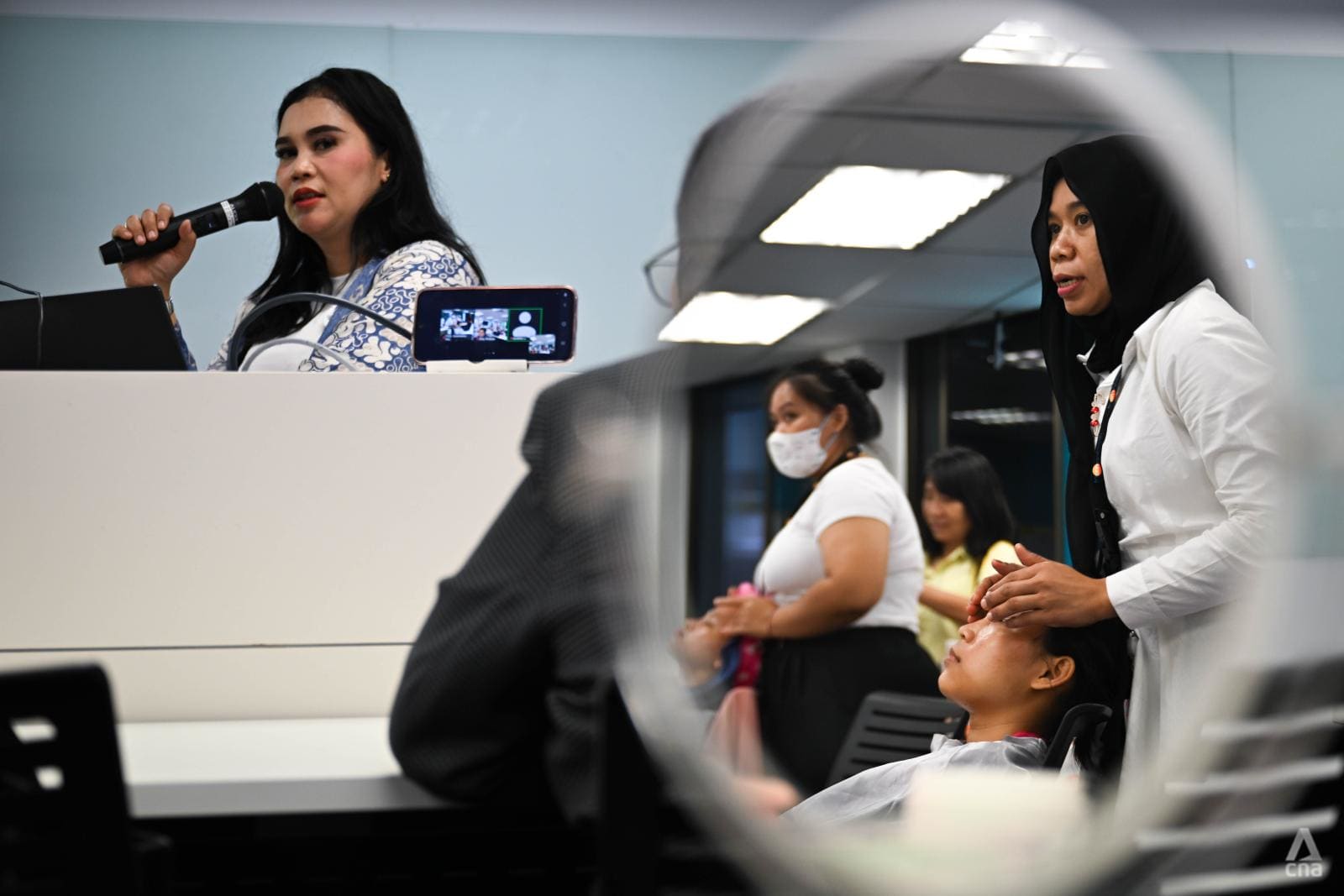
The makeup class, lasting about one hour, attracts significant interest from the migrants, including Karlina and Nurul.
ŌĆ£The teachers are very friendly. The lessons are incredibly interesting and eye-opening,ŌĆØ said Karlina.
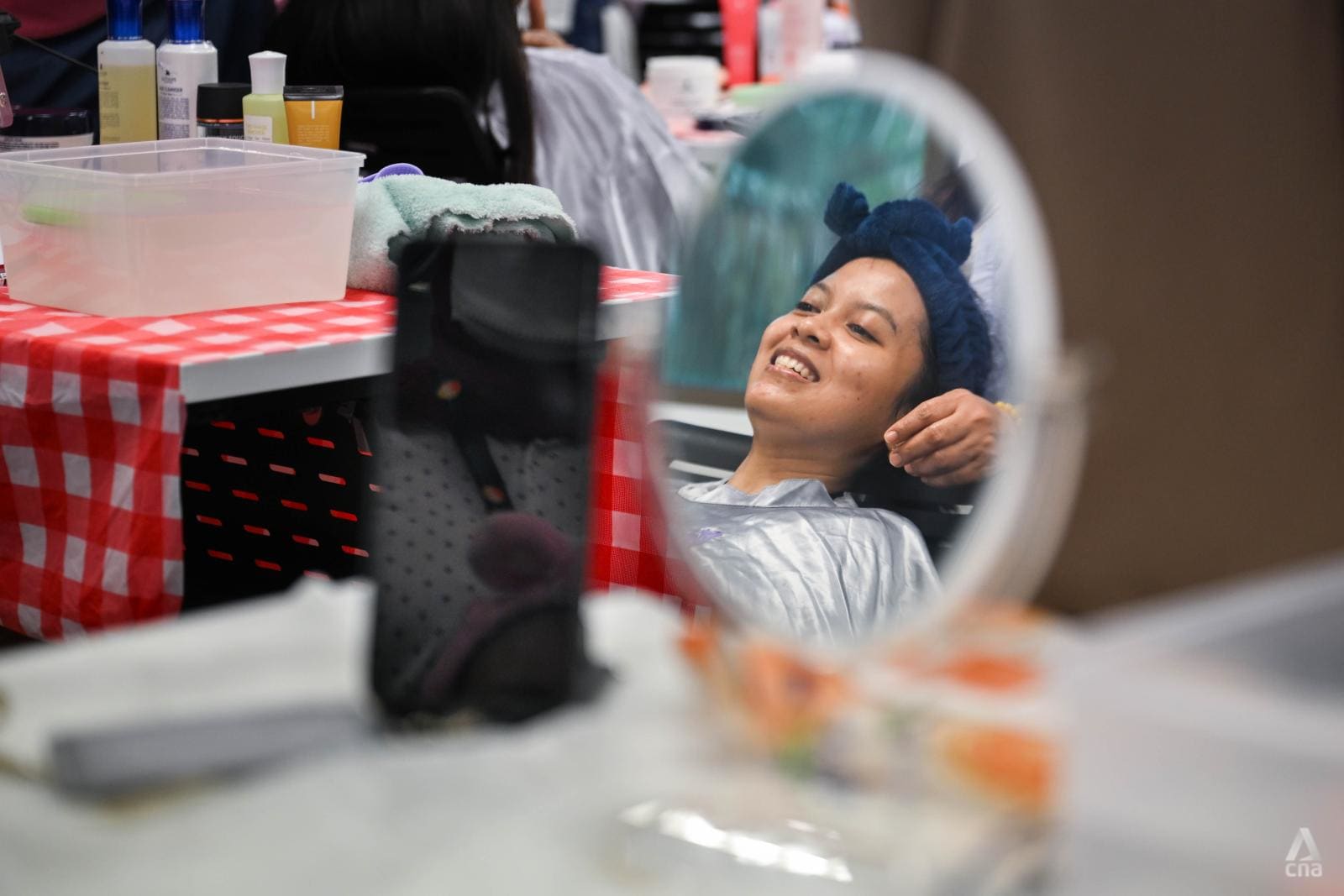
Another volunteer, Yobel Gracio Sirait, 27, a graphic designer and video editor from Padang in West Sumatra who has lived in Singapore for four years, teaches video and photo editing using the CapCut and Canva applications.┬Ā
ŌĆ£What inspires me are the students. Despite being separated from their families, they still have tremendous enthusiasm to learn,ŌĆØ said Yobel, who has taught at Development Singapore for three years.
He was happy to learn that some of his former students are using the knowledge for their businesses back home.
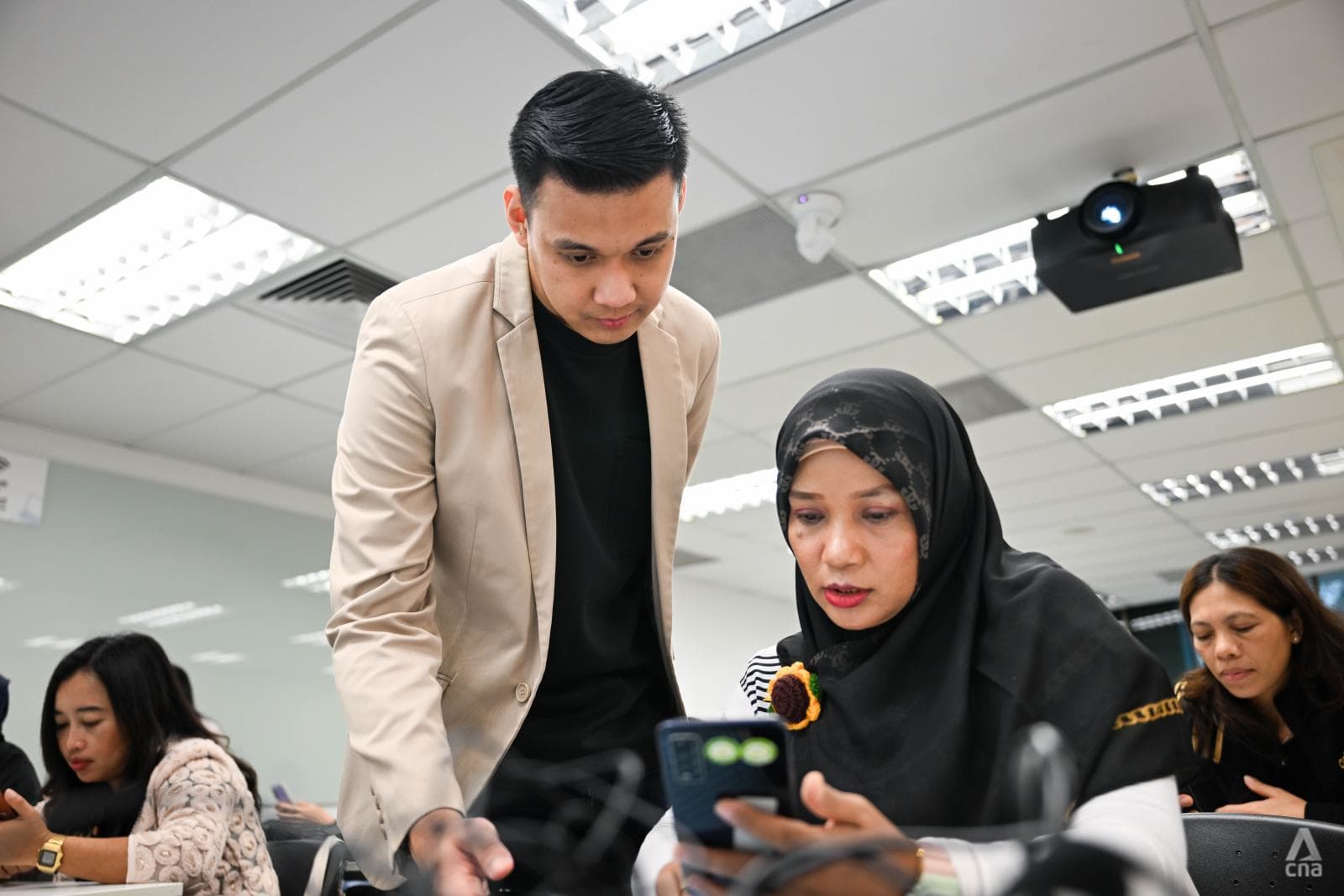
Sherlyn Dcuka, a 34-year-old domestic worker who is a current student, dreams of opening a coffee shop and is learning the relevant digital marketing skills to realise her goal.
Fellow classmate Aster, 42, has even opened her own remote business while still working in Singapore.
ŌĆ£With Canva and CapCut, I can promote my own business,ŌĆØ she said.
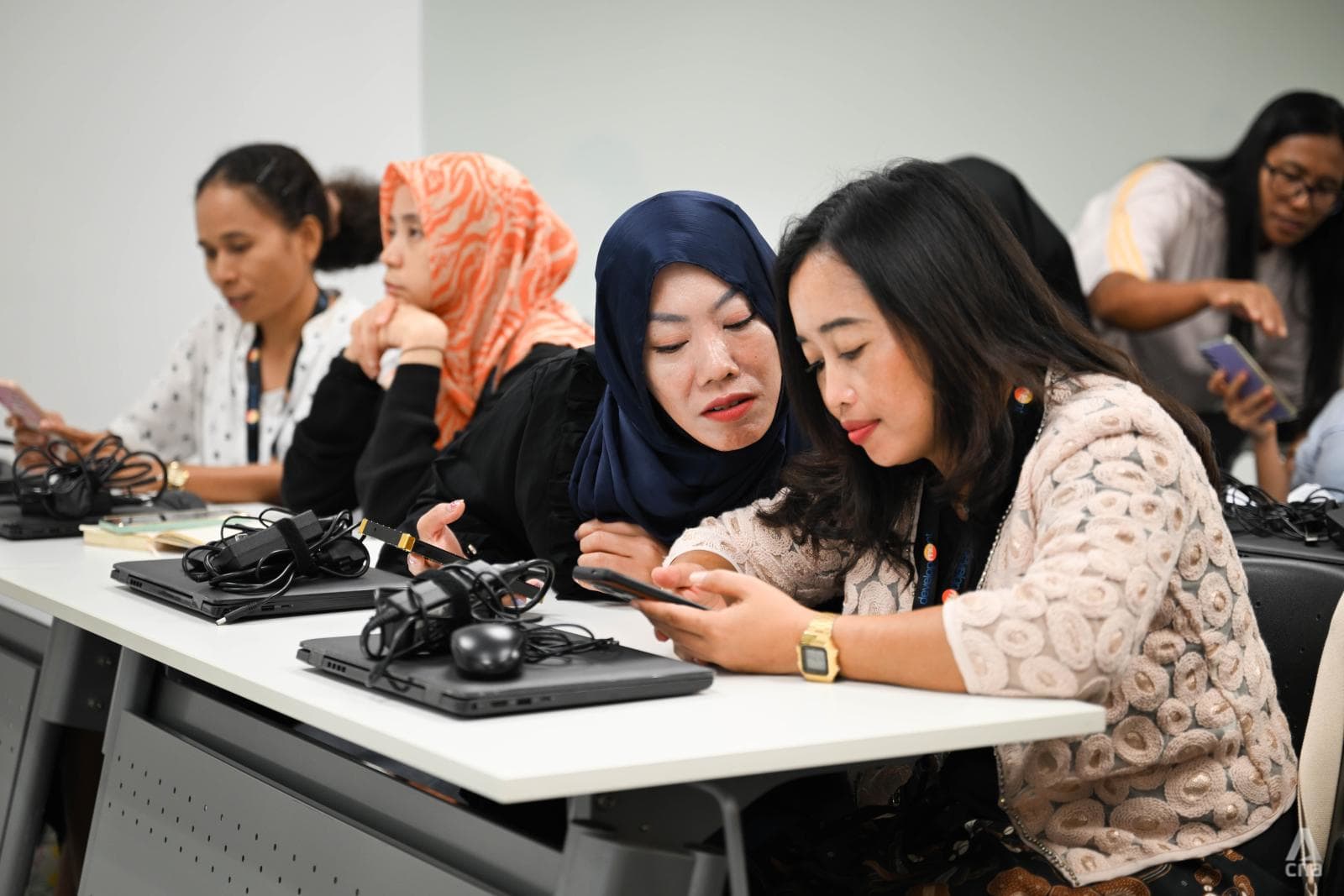
SUCCESS STORIES
Each module offered by Development Singapore spans about three months, with around 30 students per class. New students often pursue additional classes after completing their first.
ŌĆ£After three months, they usually join other courses, enrolling into an open university which offers remote learning, while some alumni have become English teachers at high schools in Indonesia,ŌĆØ Harun said.
Some are even pursuing master's degrees or starting successful businesses back home.
Nurul Fatimah, 34, for instance, successfully runs a motorcycle rental business in Nusa Dua, Bali, after working in Singapore for nine years.
Starting with two motorcycles, Nurul now owns 34 units for rent.
Another proud alumnus, Sulit Sukesi, 43, became a village chief in Central Java after returning from Singapore in 2018.
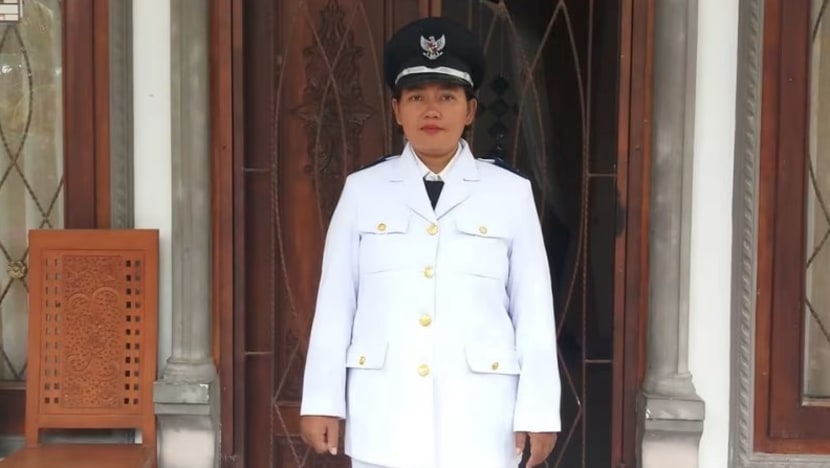
Selamet Gunawan Satriyo, who heads the Forum for the Indonesian Diaspora in Singapore (FKMIS), said Development SingaporeŌĆÖs efforts in providing inclusive education have been a boon to the community.
"FKMIS fully supports collaborative efforts that go beyond borders in building a more inclusive and adaptive educational ecosystem that empowers each individual based on their potential," he said.
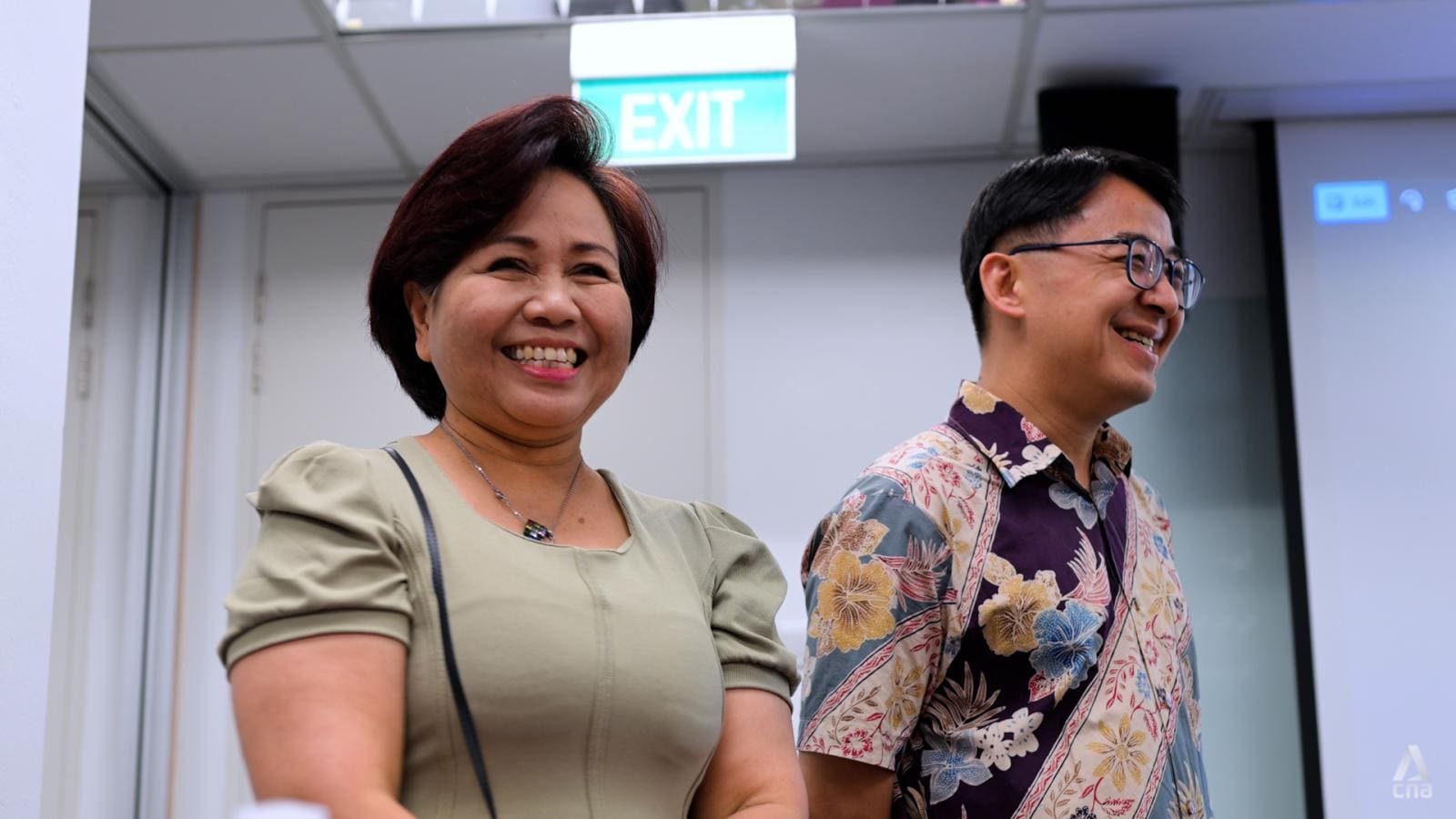
Development SingaporeŌĆÖs co-founder Josanti is pleased with what it has achieved since its founding 17 years ago.
ŌĆ£At that time, they shared their personal stories ŌĆ” that they didn't come here by choice but ŌĆ” out of necessity,ŌĆØ said the former teacher who now works as a clinic assistant.
ŌĆ£We felt compassion (for them). We knew that if we wanted to improve our lives, education is one way to do it.ŌĆØ
And through Development Singapore, thousands of Indonesians have been empowered to become teachers, entrepreneurs, village leaders and be inspiration for the next generation.
ŌĆ£IŌĆÖm grateful our initial plans have borne fruit,ŌĆØ Josanti concluded, smiling as she wrapped up her conversation with ┬ķČ╣.
















